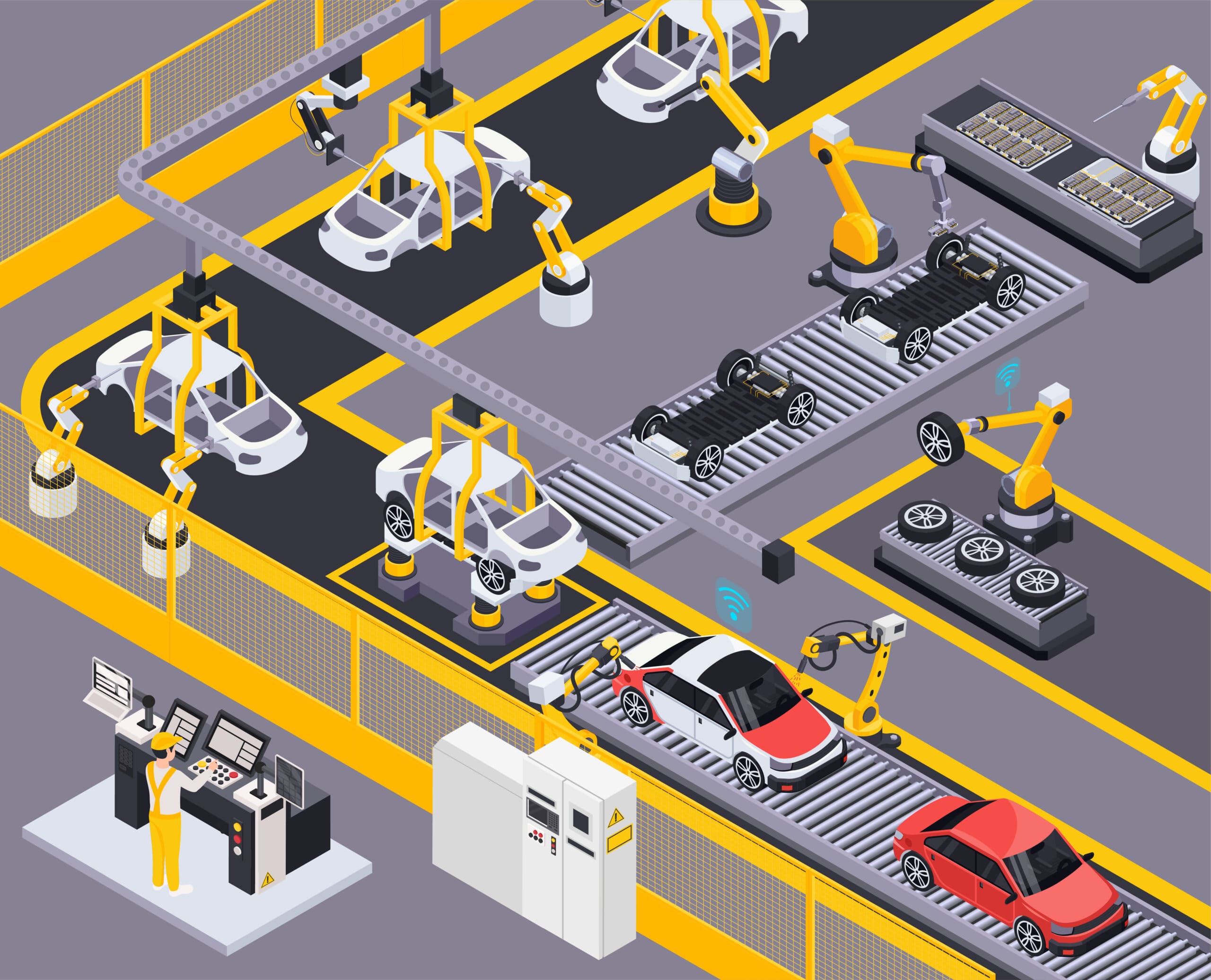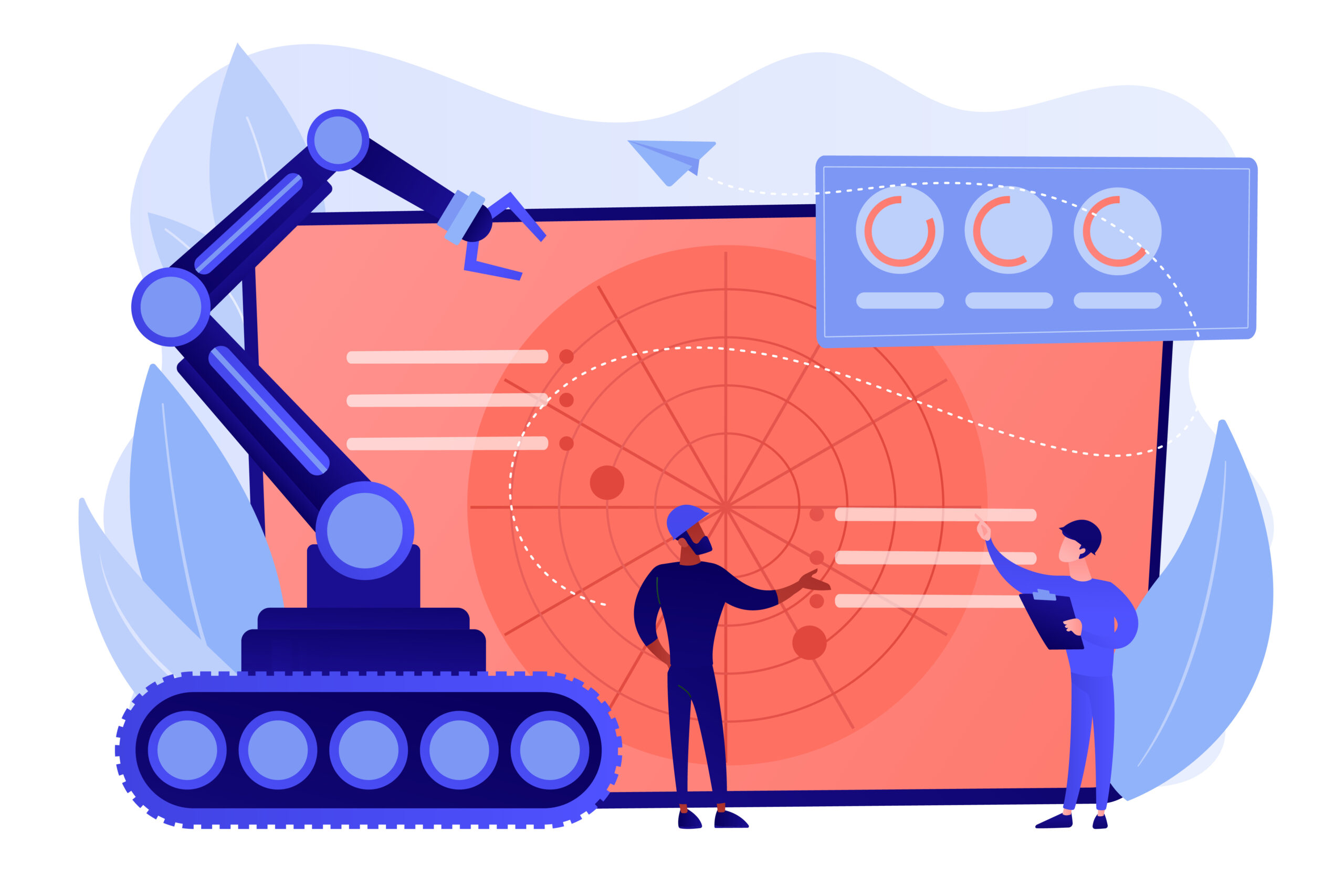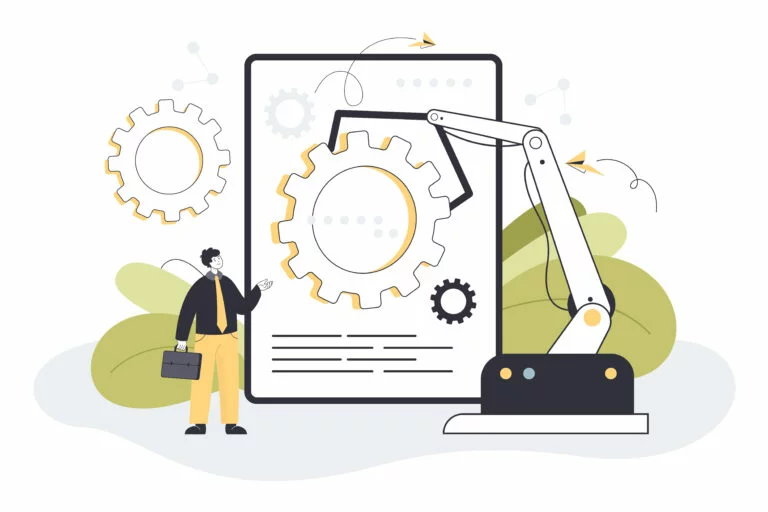The Automotive Industry world is changing because of new tech, what people want, and more competition. With all these changes happening fast, keeping track of contracts is super important to keep things running smoothly, work well with suppliers, and avoid problems. The old way of using paper for this just doesn’t cut it anymore. That’s why car companies are now using special software called Contract Lifecycle Management to make their lives easier and help them move into the digital age.
This Contract Lifecycle Management (CLM) software puts everything about contracts in one place – from starting a contract to making sure it’s followed properly. By moving contract stuff online, car makers can work together better, see what’s going on more clearly, and make some tasks automatic. This means they can save money big time while also cutting down on mistakes and doing things faster.
Contract Management in the Automotive Sector
In the world of cars and trucks, how companies handle their contracts has changed a lot. Back in the day, automotive businesses used to deal with agreements on paper. This old way often caused mix-ups, took too long, and had mistakes. But as technology got better and cars became more complex, there’s been a big move to managing contracts digitally.
Contract Management software is a game-changer for the car industry. It helps car companies manage contracts smoothly by automating contract setup, tracking approvals, and providing easy access to contract status at any time. By using this smart tool, car makers can make choices based on solid info which helps them grow bigger and do better.
Role of CLM Software in Modernizing Operations
In the automotive industry, CLM software is essential for modernizing operations, improving customer service, and encouraging growth. As car-making and selling become more complex, effective contract management is crucial. Contract management software provides a centralized platform for handling contracts, tracking customer preferences, and quickly creating targeted offers.
It automates tedious tasks, enhances collaboration, and enables better decision-making with real-time data from contracts. This leads to happier customers, streamlined operations, and increased profitability. For car manufacturers, adopting this software is not just beneficial but necessary for smooth and efficient operations.
Related Article: How CLM Benefits The Energy Industry?
Key Benefits of CLM Software for Automotive Manufacturers

Here’s how CLM software makes things better for those in the automotive industry:
- It makes working together with suppliers easier and everyone knows what’s going on.
- It simplifies keeping up with rules and spotting risks early.
- It cuts down on the time it takes to get contracts written up and signed off.
- It allows companies to see how well their contracts are doing without waiting around.
- And it tackles specific issues car manufacturers face like dealing with complicated agreements in their supply chains or adjusting quickly when laws or market needs change.
Related Article: Maximizing CLM Benefits In Manufacturing Industry
Contracts Used in the Automotive Industry

Tracking Supplier Agreements
In the automotive industry, tracking supplier agreements is essential for maintaining a smooth supply chain. These agreements explain how suppliers provide goods or services, including specifics like quantity, delivery times, prices, quality standards, intellectual property rights, confidentiality, resolving disputes, and terms for ending or extending the agreement. Monitoring ensures these rules are followed, maintains quality, and helps manage relationships with suppliers. This is essential for keeping production consistent and avoiding problems in the automotive supply chain.
Manufacturing Agreements
Manufacturing agreements in the automotive industry are crucial contracts between car makers and third-party suppliers who make parts, components, or whole vehicles. These agreements specify details like how things are made, quality standards, when things are made, prices, who owns ideas, and who gets materials and follows the rules.
They also include warranties, who is responsible if something goes wrong, how disagreements are solved, and keeping things secret. These agreements ensure that products are consistently good, production is smoother, costs are controlled well, and everyone knows who’s responsible in the supply chain. This helps the car industry make sure their vehicles are dependable and follow the rules when they’re sold.
Joint Venture Agreements
Joint venture agreements in the automotive industry are partnerships between two or more companies. They team up to work on projects such as developing new technologies, manufacturing cars, or entering new markets. These agreements outline each company’s roles, ownership, management responsibilities, profit sharing, decision-making processes, and terms for ending the partnership.
They aim to use each company’s strengths, share risks and resources, access new markets or skills, and become more competitive. In automotive, joint ventures often combine tech skills, manufacturing know-how, or market access to chase opportunities that would be hard or expensive to do alone, helping the industry grow smarter and stronger.
Technology Licensing Agreements
Technology licensing agreements are contracts where one company (the licensor) allows another company (the licensee) to use its technology or intellectual property. The agreement spells out how and where the technology can be used, any fees or payments involved, and how long the agreement lasts. This lets the licensee use the licensor’s technology without making it themselves, while the licensor earns money and may reach new markets.
Service Agreements
Service agreements in the automotive industry are contracts that outline how one party provides services to another, such as car manufacturers, dealerships, or service providers. They specify what services are offered, how well they must be done, the cost, each party’s responsibilities, how performance is assessed, and when payments are made.
These agreements cover services like maintenance, repairs, warranties, and technical support. They ensure clarity in roles, maintain service quality, and provide a framework for resolving issues and meeting expectations. In the automotive sector, these agreements are essential for customer satisfaction, vehicle performance, and brand reputation.
Distribution Agreements
Distribution agreements in the automotive industry are contracts that set rules for how manufacturers or suppliers send their vehicles, parts, or components to dealerships or other distributors. These agreements cover things like where they sell, how much things cost, when they arrive, who does ads, what happens if there’s a problem, and when they pay.
They make sure products move smoothly, reach all the right places, and keep customers happy. These agreements help companies handle their supply chain, get to their goals, and keep good relationships with distributors, which is key for selling well in the car business.
Supply Chain Agreements
Supply chain agreements in the automotive industry are contracts that manage relationships between manufacturers, suppliers, distributors, and logistics providers. They cover pricing, delivery times, quality standards, inventory, fixing mistakes, and solving problems. These contracts keep things running smoothly, lower risks, improve logistics, and make sure products are always good and available. They’re crucial for coordinating between different groups, saving money, and meeting customer needs in the car industry.
Related Article: CLM For Retail Industry: Maximizing Growth Potential
Problems of Automotive Firms

Time-consuming manual tasks: Contracting processes that rely on manual handling of paperwork and data entry are time-consuming and labor-intensive. This inefficiency can lead to delays in finalizing agreements, increased administrative burden, and reduced productivity for employees involved in contract management.
Disjointed workflows: When contract management lacks streamlined processes or integration between stages, it causes inefficiencies and delays. This can result in missed deadlines, increased costs, and difficulty in tracking contract progress, affecting overall business operations and customer satisfaction.
Increased risk of errors: Manual processes often lead to mistakes like data entry errors, miscommunication, or overlooking important details. These errors can cause delays, increase costs, and affect decision-making, highlighting the need for more reliable and efficient automated systems.
Lack of visibility into supplier terms: Lack of clarity on contract terms with suppliers hampers companies’ ability to maximize agreement benefits. This opacity can lead to misunderstandings, suboptimal resource allocation, missed opportunities for cost savings, and strained supplier relationships, impacting overall operational efficiency and profitability.
Pressure for product innovation and cost reduction: In the automotive industry, balancing innovation with cost efficiency is crucial. Inefficient contracting processes hinder this balance by causing delays, missed opportunities, and increased operational costs, limiting the industry’s ability to meet evolving market demands swiftly and economically.
Related Article: How Financial Industry Get Benefit From CLM Software?
CLM Software for the Automotive Sector

CLM software designed for the automotive sector offers comprehensive tools to manage contracts from initiation to renewal or termination. It digitizes contract creation, negotiation, and approval processes, reducing reliance on manual paperwork.
This automation improves contract visibility, ensuring all parties adhere to terms and conditions. Additionally, the software tracks key milestones and performance metrics, facilitating better supplier management and compliance monitoring. By integrating with existing systems, CLM software enhances collaboration across departments, fosters transparency, and helps automotive companies mitigate risks associated with contract management.
Related Article: How Can Pharmaceutical Industry Benefit From CLM Software
Why Choose Volody’s CLM Software?

Volody’s AI contract management software is designed specifically for automotive companies to make managing contracts easier. It helps them save money and work better with their suppliers. By using Volody, companies can speed up how quickly they bring products to market and make more money.
Volody also helps prevent losing money by making it easier to see what agreements with suppliers say and making sure suppliers do what they promise. It also helps companies work more efficiently by showing them what’s happening with their contracts right away and reminding them when they need to do things, which makes them more productive overall.
Features of Volody’s AI CLM Software
Centralized Repository
In Contract Lifecycle Management software for the automotive industry, a centralized repository is a main feature. It serves as a single place where all contract documents, data, and information are stored in an organized way. This makes it simple for automotive companies to find, handle, and follow contracts from start to finish.
It makes things more efficient by getting rid of misplaced documents, keeping contract management consistent, and making departments more clear about what’s going on. Also, having everything in one place makes it easier to find contract details fast, follow rules, and make better decisions about contracts and relationships with suppliers.
Obligation Management
Obligation management is a crucial feature in CLM software tailored for the automotive industry. It helps organizations effectively track and fulfill their contractual obligations and commitments. This feature makes sure that everyone involved knows and fulfills their duties as written in contracts with suppliers, partners, or clients.
By providing clear visibility into deadlines, deliverables, and performance metrics, obligation management minimizes the risks of missed obligations and contractual disputes. This proactive approach improves how well contracts are followed and makes operations smoother. It also helps build better relationships with everyone involved, which helps car companies succeed overall in the automotive industry.
Automating Tasks
Automating tasks is a key feature in Contract Lifecycle Management software for the automotive industry. It uses technology to handle repetitive or manual tasks in managing contracts. This includes automating tasks like drafting contracts, approving workflows, sending renewal reminders, and checking compliance.
By automating these tasks, car companies can reduce mistakes, save time, and work more efficiently. This feature ensures contracts are managed consistently, speeds up contract processes, and lets employees focus on more important work. Overall, task automation in CLM software boosts productivity, speeds up decision-making, and helps contracts run smoothly in the automotive sector.
Related Article: Contract Management Software (CLM) For Transportation Industry
Frequently Asked Questions
What is the ROI of Implementing Contract Management Software?
Using CLM software in the car-making industry offers significant benefits. It streamlines contract management, automates tasks, and provides valuable insights for improvement, helping companies earn more while spending less. By linking production and sales data, car makers can catch mismatches early, preventing financial losses.
It also simplifies risk management by giving all stakeholders access to contract details, reducing disputes and surprises. CLM tools ensure suppliers meet their commitments, saving money and boosting efficiency. Integrating CLM with systems like SAP S/ 4HANA centralizes data, making contract management smarter and less time-consuming. Overall, CLM software helps car manufacturers improve operations, reduce costs, and enhance profitability.
How Does CLM Software Support Sustainability Goals in the Automotive Industry?
CLM software is essential for automotive companies aiming for sustainability. It simplifies supplier management by providing clear details on prices, supply quantities, and delivery schedules, ensuring suppliers follow green practices.
The software also streamlines eco-friendly procurement, helping companies prioritize vendors committed to sustainability. Additionally, it helps set up and monitor agreements for using eco-friendly materials, recycling, and reducing carbon emissions. In short, CLM software improves supplier relationships and supports the implementation of eco-friendly measures, helping automotive companies reduce their environmental impact.
Conclusion
To wrap things up, CLM software is changing the game in the automotive industry by making teamwork better, keeping everything legal, and putting important tasks on autopilot. With its ability to watch over things all the time and analyze data as it comes, it makes running a business smoother and less risky. This is super important for car makers today.
It tackles specific problems they face like dealing with complicated deals in their supply chain or following strict rules without breaking a sweat. CLM software helps them work smarter and come up with new ideas faster.
As these businesses look to get better at what they do, picking a CLM tool that works well with AI (artificial intelligence), learns on its own (machine learning), and can connect different devices will be key. The road ahead is all about using smart contracts wisely and focusing more on being eco-friendly which puts the software right at the heart of future advancements in cars.





